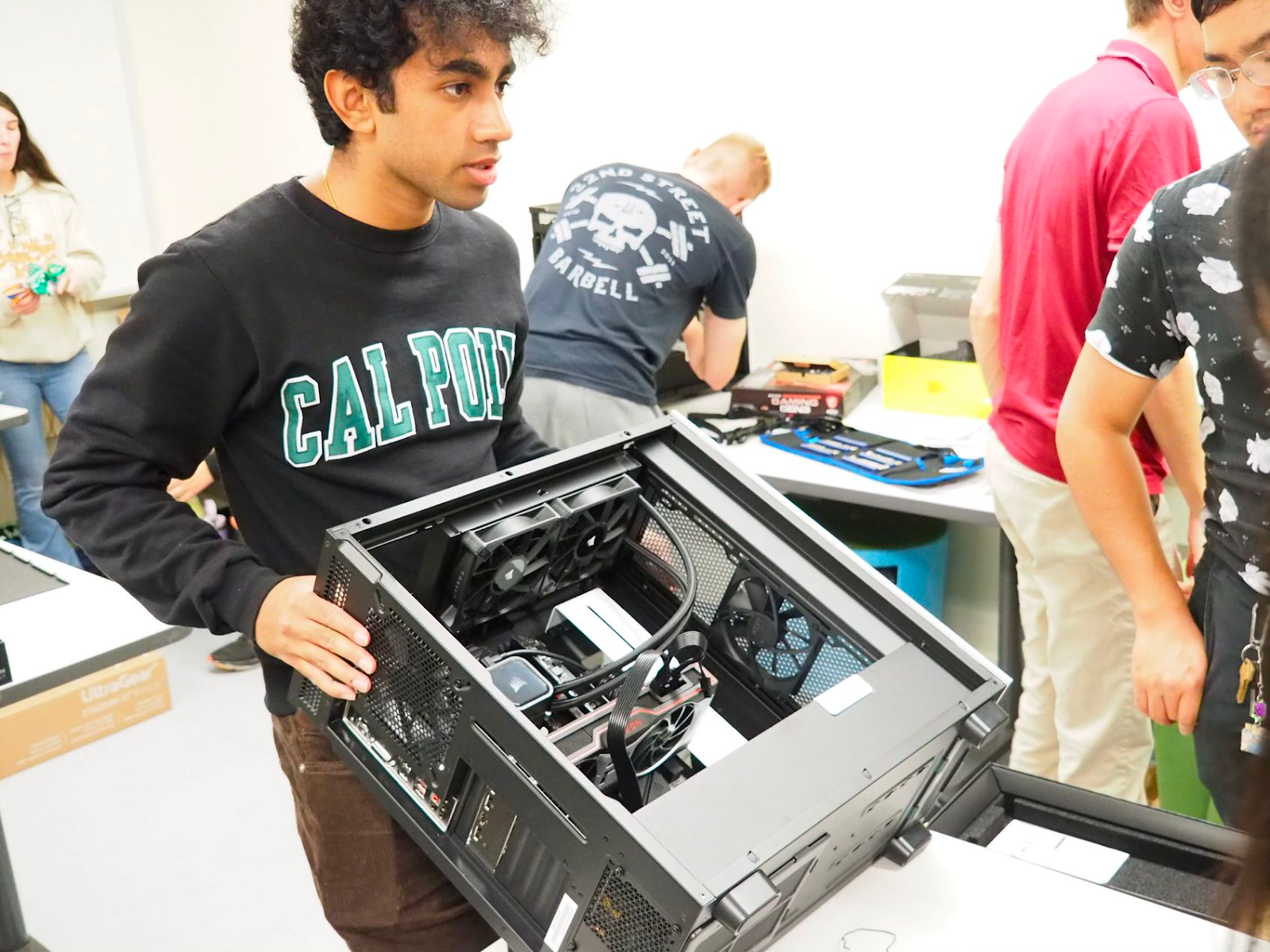The concept of owning both a laptop for school work and a gaming PC may seem extravagant to the average casual gamer. However, the limitations of older laptops and Macs with inferior graphic cards mean they struggle to run many popular games, some of which are incompatible with Mac platforms.
Rebekah Lee, esports club president and a forest and fire science senior, began her gaming journey on her brother’s used laptop. But she could only muster an unplayable 25 frames per second (FPS) on games like Overwatch.
Trying to play fast-paced first-person shooter games like Overwatch at a mere 25 FPS is akin to watching an action sequence in The Matrix on a 50-page flipbook instead of an HD screen.
This compromises the gaming experience leading to lagging and dropped frames which can influence the outcome of the game.
Bringing esports within reach
Nonetheless, the Cal Poly Esports Club is planning to set up a state-of-the-art computer lab to accommodate competitive players, making owning a Mac or investing in a costly PC unnecessary.
According to Lee, this sport is not readily accessible; if the school can’t provide the requisite technology, a gamer could be compelled to spend around $1000 on a robust Windows computer with adaptive gaming capabilities.
Lamentably, the gaming lab maintained by the computer science department is furnished with outmoded Alienware monitors. Not all are connected to PCs, and the room is often used for personal study rather than gaming.
In 2021, the esports club, guided by former advisor Andrew Byrne, secured six new PCs via an award. The PCs were received after numerous shipping delays, and club members came together to assemble them.
Watching these new machines light up for the first time was a memorable milestone for the club, according to Lee.
These computers undergoing constant use will be stationed on campus, their exact location yet to be determined. The ultimate goal is a well-equipped computer lab fitted with 20 or more PCs that can be used by competitive teams for scrimmages.
Adi Gottumukkala, the current esports club president and a computer science junior, is working diligently alongside Lee to organize additional equipment.
The cited issues faced by potential competitive team candidates, such as lack of PCs, could be significantly curtailed by the availability of these six PCs.
Currently, competitive team members hone their skills remotely and interact via Discord voice calls. Gottumukkala explains the scope and impact of this virtual arrangement on team collaboration and success using a football analogy.
Tyler Brady, a Division II Overwatch player, and computer science senior echoed the sentiment. The concept of a shared physical space facilitating real-life interaction between team members is an appealing prospect.
In gaming, effective communication is essential, not unlike other team sports. A swift game defeat can hinge on a breakdown in communication.
Gottumukkala emphasizes the strategic element of gaming; an organized team with excellent communication skills can effectively compete with any world team.
Establishing a physical presence on campus
The ambitious dream of setting up a computer lab may run aground the challenge of limited campus space, the need of a plethora of campus clubs.
The lack of an official endorsement for the esports club in comparison to athletic programs may lessen their chances of obtaining a dedicated gaming location.
However, talks between Gottumukkala and a spokesperson on behalf of the University Union Advisory Board’s ASI Chair have commenced, aiming to attune to the needs of the gaming community.
Approval from ASI would be a significant victory for the esports club. ASI is also looking to create intramural leagues specifically for esports.
Since several UCs and CSUs have already got onboard with PC Cafes, Cal Poly, a PC Cafe pioneer, is examining its options, notes Gottumukkala.
Critical right now is getting support for more PCs from companies. Gottumukkala is reaching out to different gaming industry players while rallying the gaming community around the mission.
In Gottumukkala’s view, creating a physical venue that students can count on is a significant step toward “making it real,” and uniting the community.
